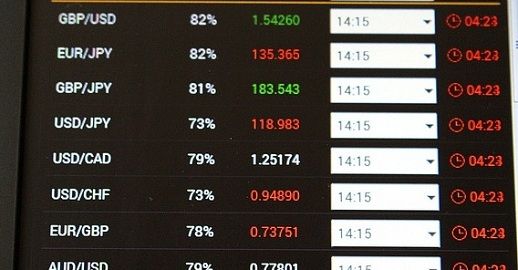 The two biggest stock exchanges in the United States, as well as in the world are New York Stock Exchange (NYSE) and National Association of Securities for Dealers Automated Quotation (NASDAQ) in terms of market capitalisation and turnover. While NYSE is an auction market, NASDAQ is a dealer market.
The two biggest stock exchanges in the United States, as well as in the world are New York Stock Exchange (NYSE) and National Association of Securities for Dealers Automated Quotation (NASDAQ) in terms of market capitalisation and turnover. While NYSE is an auction market, NASDAQ is a dealer market.
In the trading sector, these two leading exchanges have gained sheer popularity, as they provide the exclusive trading platform.
If you are also new to this, you might want to know, which one is a better stock exchange. These two differ in a number of ways like the prerequisite for a company to be listed on the exchange, fee structure, market type, mode of trading, etc. So, have a look at this article we have simplified, the comparison for you.
Content: NYSE Vs NASDAQ
Comparison Chart
| Basis for Comparison | NYSE | NASDAQ |
|---|---|---|
| About | NYSE is world's oldest marketplace for buying and selling of stocks, regulated by Securities and Exchange Commission. | NASDAQ is an American exchange platform designed to help investors to trade on stocks on a telecommunication network. |
| Established in | 1792 | 1971 |
| Owner | Intercontinental Exchange | NASDAQ Inc. |
| Type of market | Auction Market | Dealer Market |
| Trading floor | Physical | Virtual |
| Rely on | Specialist | Market Maker |
| Number of companies listed | 2400 | 3100 |
| Annual fee | $500,000 | $27,000 |
Introduction to NYSE
New York Stock Exchange or NYSE, also known as ‘The Big Board’ is the world’s leading equity-based marketplace, launched more than 200 years ago, in 1792. It started as a private organisation, which later on converted its status to a public entity in 2005. It is the oldest stock exchange in the world, whose listing requirements are fairly stringent, due to which only large and financially secure companies qualify for listing. In NYSE an auction takes place every day on the trading floor.
The system of brokers and specialists are responsible for trading, wherein brokers act as a link between investor and market, whereas there are two major roles played by specialist, first, to match buy and sell orders, if prevailing prices allow and second, if they cannot match customer requirements, then buy and sell order on their own account.
Introduction to NASDAQ
NASDAQ, is a short colloquial term for National Association of Securities for Dealers Automated Quotation, is an electronic marketplace. Formerly started as a US-based equities exchange, it is a choice of leading companies worldwide due to its growth, depth of market, liquidity and forward-looking technologies. It allows investors to trade on securities on an automatic, transparent and electronic system.
There is some financial requirement which needs to be fulfilled by the companies to get listed on NASDAQ. As trading takes place electronically, the exchange is called dealer’s market because the purchasing and selling of stocks by the broker through the market maker.
Key Differences Between NASDAQ and NYSE
The most significant differences between NASDAQ and NYSE are discussed in the following points:
- NYSE is world’s oldest marketplace for buying and selling of stocks, regulated by Securities and Exchange Commission. NASDAQ is an American exchange platform designed to help investors to trade stocks on a telecommunication network.
- NYSE is the oldest stock exchange in the world, formed in 1792. On the other hand, NASDAQ has established only a few decades ago, in 1971.
- Intercontinental Exchange owns New York Stock Exchange while NASDAQ is owned by NASDAQ Inc.
- NYSE is an auction market, where auction takes place each day on the stock exchange. Unlike, NASDAQ has substantial human involvement, so it is a dealer market.
- NYSE is a floor-based stock market. As opposed NASDAQ, where trading is done electronically.
- In New York Stock Exchange, it is the specialist who is responsible for trading on the exchange. On the contrary, NASDAQ more than 500 market makers compete to make markets.
- There are more than 2400 companies listed on NYSE. As against this, NASDAQ lists over 3100 companies.
- The annual fee collected by NYSE is $500,000. In contrast, the annual fee collected by NASDAQ is around $27000.
Conclusion
In the end, we can conclude that there is a neck to neck competition in the two exchanges. In terms of market capitalization, NYSE is the largest stock exchange, but when we talk about turnover, NASDAQ outpaces other markets. While NYSE is the oldest stock exchange, NASDAQ is the fastest growing stock market in the world.






Leave a Reply